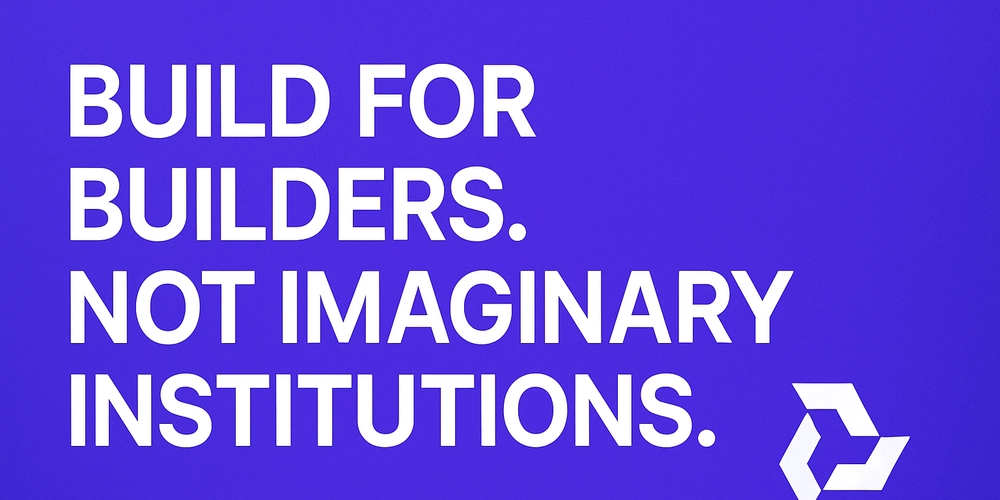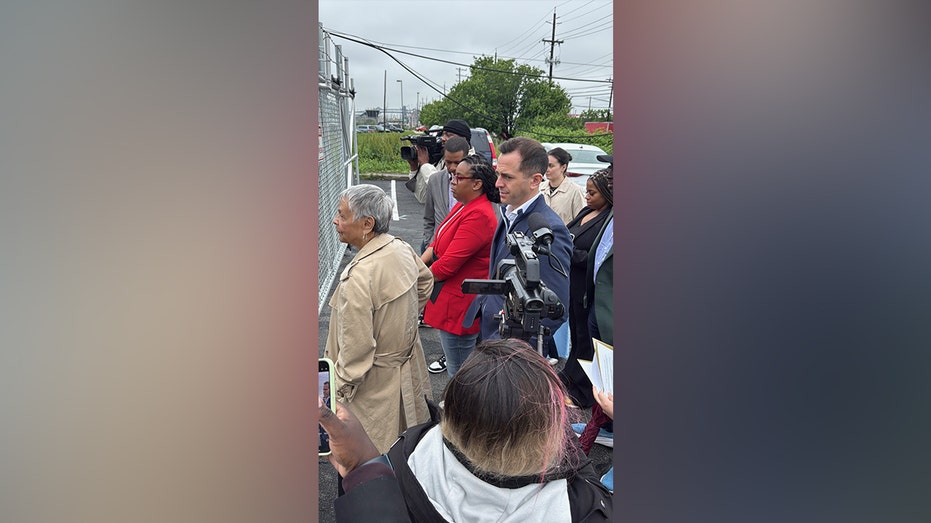A Call to Action for the XRPL Community: Why We Must Veto Amendments
A Call to Action for the XRPL Community: Why We Must Veto Credentials and Permissioned Domains If you are an XRP holder, XRPL developer, or XRPL ecosystem participant – stop and read this. You do have powers to influence the future. For everyone and especially yourself. And to do so, we will start by placing a veto on two amendments. The Current Situation Right now, there are two amendments up for vote by UNL validators: Credentials and Permissioned Domains. These proposals are apparently focused on "institutions" for "institutional DeFi" – at least that is what's being publicly stated by the amendment initiators and their affiliates. They are a logical continuation of the DID (Decentralised Identifier) amendment, which is currently used just a couple of times per month – effectively not used at all. Despite what you may have been told, there are virtually no institutions actively using XRPL. At XPMarket, we've been analysing and publishing data for more than three years, and there is zero indication of even a single large institution being active on the ledger for the purpose of DeFi, RWA, or other form of tokenisation. If you prefer not to rely solely on our expertise, you could consult more Ripple-biased tools such as RWA.xyz or Messari, but the truth remains: there is virtually no Institutional DeFi/RWA/tokenisation on the ledger, despite XRPL being absolutely perfect for this use case. We had hoped $RLUSD would improve matters, and we adopted it as a payments standard – the first on the ledger, by the way! But the reality is that RLUSD is an ERC20 (Ethereum native) token with no direct way of off-ramp straight from XRPL. Looking at the top AMM Pools, they're dominated by altcoins and memes, not "institutional" assets. RLUSD barely made the cut, and if it weren't for XRPL developers and their apps, there wouldn't even be an easy way to provide liquidity for it. The Real Problem XRPL is gradually transforming into a degen-style gambling ledger where only meme coins and games of chance generate profit. Not quite an institutional image, isn't it? This trend is leading to an overall decline in the quality and public image of the ledger. Why is this happening? Because developers have an incredibly limited set of tools to generate revenue. After nearly four years of observation, we've seen both established and new developers abandon the ledger – not because their products were poor, but because XRPL was never designed to facilitate revenue generation. Currently, based on our estimates, only four dApps on XRPL generate enough income to sustain development and serve their users. This is an utterly unacceptable figure. And, obviously, not everyone can generate revenue by simply selling the native ledger's asset from the pre-mine. To monetise services, developers are forced to rely on centralised or semi-centralised tools. This approach is far from ideal, as it is more vulnerable in safety and less transparent. In more than a decade, no proper revenue-generating tools have been implemented into the ledger itself. As a result, new developers are reluctant to choose XRPL as their preferred blockchain platform. What We Really Need What we genuinely need are developer-focused tools. Here's how this would benefit everyone: With proper tools, developers could build dApps focused on actual utility (including for institutions). The community would use these tools, generating cash flow. Developers would earn money through transaction fees and other forms of payment. Ecosystem participants would have tools to leverage their capital in DeFi and other applications. Hence generating even more cashflow. This virtuous cycle would compound into much higher XRP demand (creating buy pressure for XRP and more demand for quality dApps) as the ecosystem grows. This sounds as an incredibly logical thing. But it is still not fully possible. The XRP Ledger is lagging behind competitor ecosystems where such problems do not exist. We urgently need features such as: Batch transactions to enable monetisation Advanced trading tools (did you know "stop loss" is technically impossible to implement in a decentralised way on XRPL?) Lending markets Futures Escrow for all tokens Subscription capabilities Foundation that takes the side of ecosystem participants These features have been consistently mentioned by developers but perpetually disregarded as low priority. Moreover, voicing the problems is often simply dangerous and backfires to those who raised these concerns. The Neglected Evidence The current prioritisation of Credentials and Permissioned Domains ignores several crucial factors: Lack of Demonstrated Demand: There are no compelling use cases or implementation plans from projects building on XRPL that indicate a practical need for these features. Existing Similar Features Unused: Even closely related infrastructure like Decentralised Identifiers (DIDs) has seen negl

A Call to Action for the XRPL Community: Why We Must Veto Credentials and Permissioned Domains
If you are an XRP holder, XRPL developer, or XRPL ecosystem participant – stop and read this. You do have powers to influence the future. For everyone and especially yourself. And to do so, we will start by placing a veto on two amendments.
The Current Situation
Right now, there are two amendments up for vote by UNL validators: Credentials and Permissioned Domains. These proposals are apparently focused on "institutions" for "institutional DeFi" – at least that is what's being publicly stated by the amendment initiators and their affiliates. They are a logical continuation of the DID (Decentralised Identifier) amendment, which is currently used just a couple of times per month – effectively not used at all.
Despite what you may have been told, there are virtually no institutions actively using XRPL. At XPMarket, we've been analysing and publishing data for more than three years, and there is zero indication of even a single large institution being active on the ledger for the purpose of DeFi, RWA, or other form of tokenisation. If you prefer not to rely solely on our expertise, you could consult more Ripple-biased tools such as RWA.xyz or Messari, but the truth remains: there is virtually no Institutional DeFi/RWA/tokenisation on the ledger, despite XRPL being absolutely perfect for this use case.
We had hoped $RLUSD would improve matters, and we adopted it as a payments standard – the first on the ledger, by the way! But the reality is that RLUSD is an ERC20 (Ethereum native) token with no direct way of off-ramp straight from XRPL. Looking at the top AMM Pools, they're dominated by altcoins and memes, not "institutional" assets. RLUSD barely made the cut, and if it weren't for XRPL developers and their apps, there wouldn't even be an easy way to provide liquidity for it.
The Real Problem
XRPL is gradually transforming into a degen-style gambling ledger where only meme coins and games of chance generate profit. Not quite an institutional image, isn't it? This trend is leading to an overall decline in the quality and public image of the ledger. Why is this happening? Because developers have an incredibly limited set of tools to generate revenue.
After nearly four years of observation, we've seen both established and new developers abandon the ledger – not because their products were poor, but because XRPL was never designed to facilitate revenue generation. Currently, based on our estimates, only four dApps on XRPL generate enough income to sustain development and serve their users. This is an utterly unacceptable figure. And, obviously, not everyone can generate revenue by simply selling the native ledger's asset from the pre-mine.
To monetise services, developers are forced to rely on centralised or semi-centralised tools. This approach is far from ideal, as it is more vulnerable in safety and less transparent. In more than a decade, no proper revenue-generating tools have been implemented into the ledger itself. As a result, new developers are reluctant to choose XRPL as their preferred blockchain platform.
What We Really Need
What we genuinely need are developer-focused tools. Here's how this would benefit everyone:
- With proper tools, developers could build dApps focused on actual utility (including for institutions).
- The community would use these tools, generating cash flow.
- Developers would earn money through transaction fees and other forms of payment.
- Ecosystem participants would have tools to leverage their capital in DeFi and other applications. Hence generating even more cashflow.
- This virtuous cycle would compound into much higher XRP demand (creating buy pressure for XRP and more demand for quality dApps) as the ecosystem grows.
This sounds as an incredibly logical thing. But it is still not fully possible. The XRP Ledger is lagging behind competitor ecosystems where such problems do not exist. We urgently need features such as:
- Batch transactions to enable monetisation
- Advanced trading tools (did you know "stop loss" is technically impossible to implement in a decentralised way on XRPL?)
- Lending markets
- Futures
- Escrow for all tokens
- Subscription capabilities
- Foundation that takes the side of ecosystem participants
These features have been consistently mentioned by developers but perpetually disregarded as low priority. Moreover, voicing the problems is often simply dangerous and backfires to those who raised these concerns.
The Neglected Evidence
The current prioritisation of Credentials and Permissioned Domains ignores several crucial factors:
Lack of Demonstrated Demand: There are no compelling use cases or implementation plans from projects building on XRPL that indicate a practical need for these features.
Existing Similar Features Unused: Even closely related infrastructure like Decentralised Identifiers (DIDs) has seen negligible usage – only three transactions last month – despite being live. This minimal engagement reflects a lack of real-world traction.
Misaligned Priorities: Features such as batching, token escrow, advanced DEX orders, or lending would offer clear, measurable improvements for developers building on XRPL today – needs repeatedly echoed by the developer community.
Ripple-Driven vs Community-Driven Development: These proposals appear to be Ripple-led in both vision and execution. While Ripple's contributions to XRPL are significant, core amendments should primarily reflect developer and builder needs.
Our Position as Validators
We, as validators, have an obligation not just to run the infrastructure but to shape the future of the ledger. This includes reviewing amendments, voting in a timely manner, expressing our concerns, withholding votes when necessary, and amplifying the community's voice. Consider validators as members of parliament who should represent the people who elected them.
This is exactly what we at XPMarket intend to do. We have been on this network since 2021, building an ecosystem that has served hundreds of thousands of XRPL wallets since then. It is time we take a stance. We came here to work on FinTech side of the things, not AdTech.
It is our position that Credentials and Permissioned Domains are the lowest priority items on ecosystem's list. We will not vote for these amendments until priorities are realigned toward the community. While it's commendable to allocate 25 million USD to education, what about dedicating resources to the chain that literally has to generate these profits later?
If you care about the future of XRPL, we urge you to make your voice heard. Reach out to your trusted validators to vote against these and subsequent amendments until developer-focused features take precedence. Together, we can steer XRPL toward becoming a viable, profitable ecosystem for all participants – not just a theoretical playground for institutional features no one is using.
It's time to course-correct.
It's time to prioritise those who are building, not those who aren't even here.
It's time to make XRPL a ledger that works for its community again.















![Ditching a Microsoft Job to Enter Startup Hell with Lonewolf Engineer Sam Crombie [Podcast #171]](https://cdn.hashnode.com/res/hashnode/image/upload/v1746753508177/0cd57f66-fdb0-4972-b285-1443a7db39fc.png?#)





























































